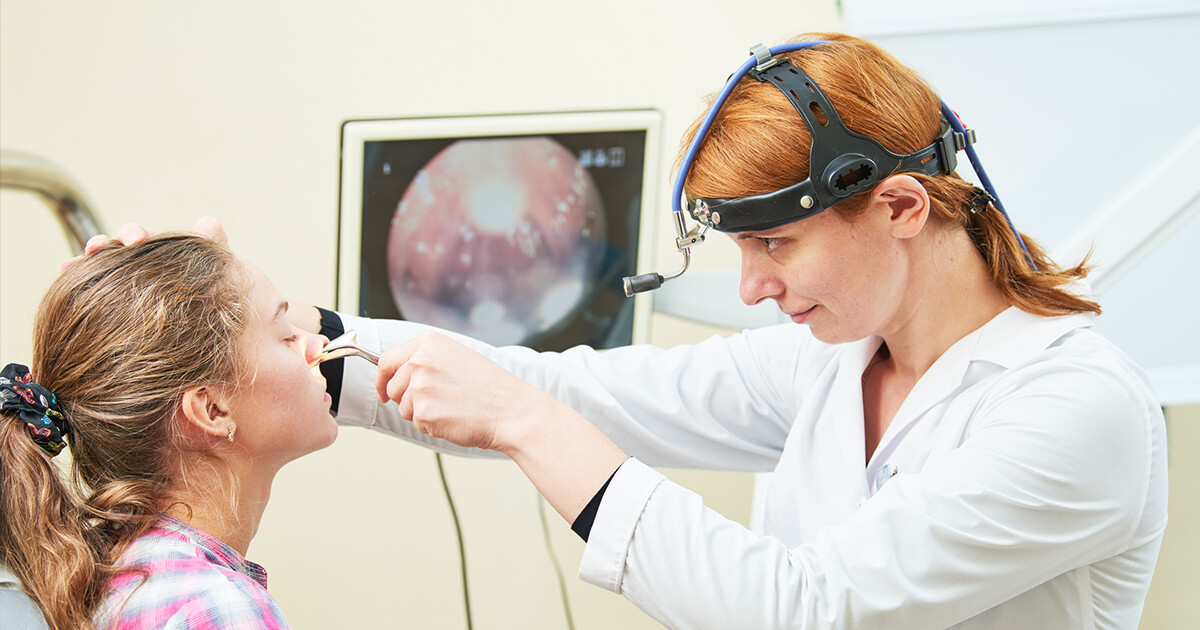Checking out the Field of Otolaryngology: What to Anticipate When You Consult an ENT
Otolaryngology, commonly referred to as ENT, includes the medical diagnosis and therapy of throat, nose, and ear problems. For those experiencing related concerns, consulting an ENT specialist can supply quality and relief. Recognizing what to expect throughout such assessments is essential for efficient communication and treatment. This review will detail crucial aspects of the ENT experience, consisting of common reasons for brows through and the procedures involved in medical diagnosis and therapy.

Comprehending Otolaryngology: An Introduction
Otolaryngology, usually described as ENT (Throat, ear, and nose) medicine, is a customized branch of medicine that concentrates on the medical diagnosis and therapy of problems influencing these crucial locations of the human body. This field incorporates a broad array of disorders, including those pertaining to hearing, balance, respiratory feature, and speech. Otolaryngologists are educated to manage both surgical and medical treatments, utilizing advanced techniques and technologies. Their knowledge extends past standard conditions, resolving issues such as allergic reactions, sinus infections, and hearing loss. In addition, they play a crucial role in the administration of head and neck cancers cells, providing thorough care customized to private patient requirements. Overall, otolaryngology continues to be necessary for preserving health and quality of life in damaged people.
Usual Factors to See an ENT Specialist
Many people look for the expertise of an ENT professional for a range of factors, mirroring the diverse nature of conditions that affect the ear, nose, and throat. Typical problems include chronic sinusitis, which often brings about relentless nasal congestion and facial discomfort. Allergic reactions and their linked signs and symptoms, such as itching and sneezing, also prompt check outs to these experts (Sinus). Hearing loss, whether unexpected or progressive, is an additional considerable factor for examination. On top of that, individuals might look for evaluation for throat conditions, including consistent hoarseness or ingesting difficulties. Rest apnea, characterized by interrupted breathing throughout sleep, is often attended to by ENT professionals too. Each of these conditions highlights the relevance of specialized care in taking care of complex ENT-related health problems
Planning for Your ENT Visit
When planning for an ENT appointment, it is important to collect pertinent details and think about any certain concerns. Patients must compile a thorough case history, including previous ear, nose, or throat concerns, surgical treatments, and current medicines. Documenting signs-- such as duration, severity, and regularity-- can supply useful understandings for the ENT expert. Furthermore, individuals need to prepare a checklist of concerns they desire to ask, making certain that all concerns are attended to throughout the check out. Bringing along any type of appropriate medical records or test results can further help the ENT in comprehending the patient's condition. People ought to confirm their consultation information, consisting of location, time, and date, to lessen any final complication. Appropriate prep work can improve the effectiveness of the assessment and bring about better results.
What to Expect During the Appointment
As the consultation begins, the client can expect to engage in a detailed discussion with the ENT specialist about their signs and symptoms and medical history. The specialist will inquire about the duration, regularity, and seriousness of signs such as hearing loss, nasal blockage, or aching throat. Additionally, the client's previous medical problems, drugs, and any relevant family members background will be assessed, helping the specialist in developing a complete understanding of the person's health. The ENT may also inquire about lifestyle aspects, such as exposure to allergens or toxic irritants. This open dialogue develops a structure for the appointment, making sure that the person's problems are resolved and setting the stage for any kind of needed analyses or recommendations for therapy.
Analysis Examinations and Procedures in Otolaryngology
A series of diagnostic tests and treatments are crucial in otolaryngology to precisely review and identify conditions influencing the ear, throat, and nose. Common tests consist of audiometry, which measures hearing function, and tympanometry, evaluating center ear pressure. Nasal endoscopy permits visualization of the nasal passages and sinuses, while laryngoscopy checks out the throat and vocal cords. Imaging techniques, such as CT scans and MRIs, supply in-depth views of head and neck structures. Allergic reaction screening might additionally be performed to identify triggers for sinus or respiratory system concerns. These diagnostic devices allow ENT specialists to establish a complete understanding of people' problems, ensuring customized and reliable monitoring plans. Proper medical diagnosis is vital for effective treatment results in otolaryngology.
Therapy Options Offered by ENT Specialists
ENT experts provide a range of treatment options tailored to attend to details conditions impacting the throat, nose, and ear. These treatments vary from traditional strategies, such as medication and way of living adjustments, to more intrusive procedures. For example, allergies might be handled with antihistamines or immunotherapy, while persistent sinusitis could require nasal corticosteroids or sinus surgery. For hearing loss, ENT specialists frequently recommend listening devices or medical interventions like cochlear implants. In cases of throat disorders, alternatives can consist of speech therapy or medical treatments to get rid of obstructions. In addition, they may give support for handling sleep apnea, consisting helpful resources of the use of CPAP tools or surgical interventions. On the whole, the goal is to enhance patients' high quality of life with customized care and effective therapy methods.
When to Seek Follow-Up Treatment With an ENT
Recognizing when to look for follow-up care with an ENT specialist is crucial for handling recurring signs or difficulties connected to throat, ear, and nose problems. Patients must think about arranging a follow-up appointment if symptoms persist regardless of first therapy, such as chronic ear pain, nasal blockage, or throat discomfort. Modifications in hearing, balance problems, or unusual nasal discharge may additionally call for further examination. Furthermore, if a client experiences adverse effects from suggested medications or has actually undertaken a procedure, follow-up treatment is important to check healing and address any kind of concerns. Timely examinations can guarantee efficient our website management of problems, stop potential problems, and provide tranquility of mind pertaining to one's wellness. Seeking follow-up care advertises positive wellness monitoring in otolaryngology.
Frequently Asked Questions

What Certifications Should I Search for in an ENT Specialist?
When looking for an ENT expert, one need to seek board qualification, pertinent experience, and strong person evaluations. In addition, reliable communication skills and a thoughtful strategy can considerably improve the total therapy experience.
Exactly how Do I Choose the Right ENT for My Demands?
Choosing the best ENT expert includes assessing their qualifications, experience, and individual testimonials (ENT Doctor). It is necessary to consider their communication design and method to therapy, ensuring they line up with the individual's certain health and wellness demands and preferences
Are There Any Kind Of Threats Connected With ENT Procedures?
The dangers connected with ENT treatments might consist of infection, blood loss, anesthesia difficulties, and possible damages to bordering frameworks. Patients should review these dangers with their doctor to recognize individual worries and assurance educated decisions.
Just How Can I Manage Anxiety Prior To My ENT Consultation?
To take care of anxiousness before an appointment, individuals can exercise deep breathing workouts, picture favorable outcomes, prepare inquiries ahead of time, and seek assistance from close friends or family, cultivating a the original source feeling of confidence and calmness.
What Should I Do if I Experience Negative Effects From Treatment?
If side impacts from therapy take place, the person should without delay report them to their health care supplier. Modifications to treatment or extra interventions might be required to ensure safety and security and effectiveness in handling their problem - ENT Clinic. As the appointment begins, the client can expect to involve in a comprehensive conversation with the ENT professional concerning their symptoms and clinical background. These diagnostic devices make it possible for ENT specialists to develop a comprehensive understanding of individuals' conditions, ensuring tailored and efficient monitoring strategies. ENT specialists provide a selection of treatment choices customized to deal with details conditions influencing the nose, ear, and throat. When looking for an ENT expert, one must look for board certification, pertinent experience, and strong client reviews. Selecting the best ENT expert involves reviewing their qualifications, experience, and individual testimonials
Comments on “Ways ENT Clinics Provide Expert Allergy and Sinus Care”